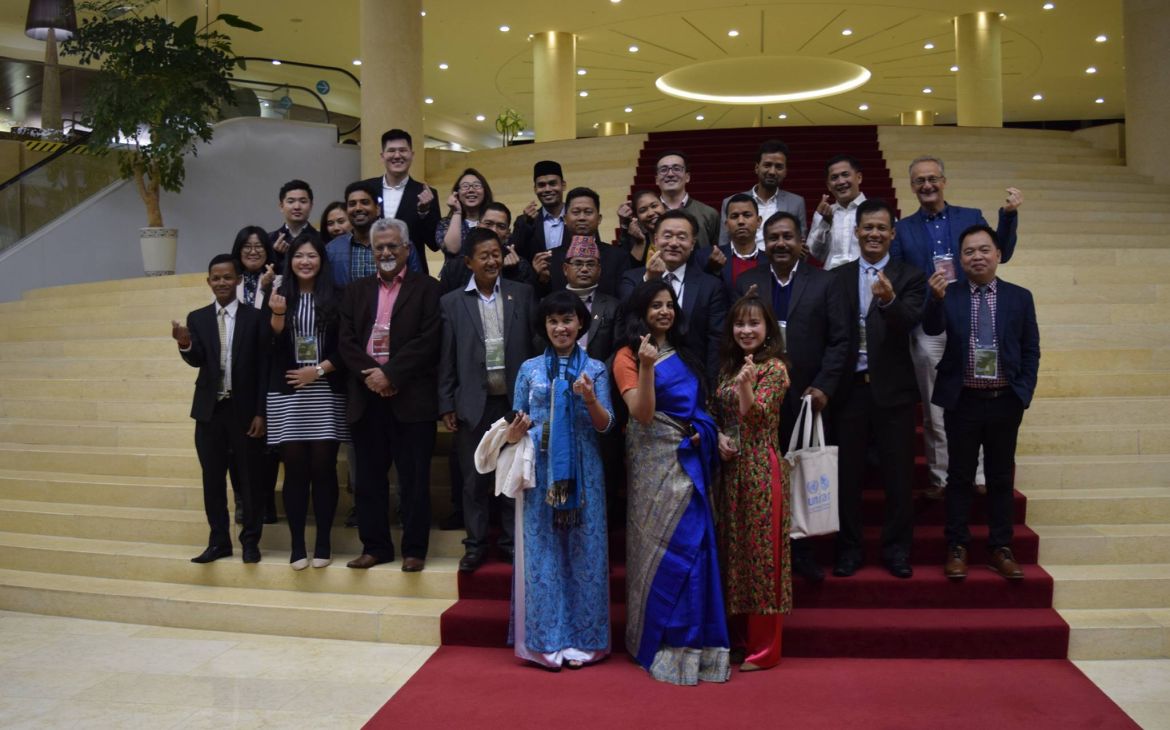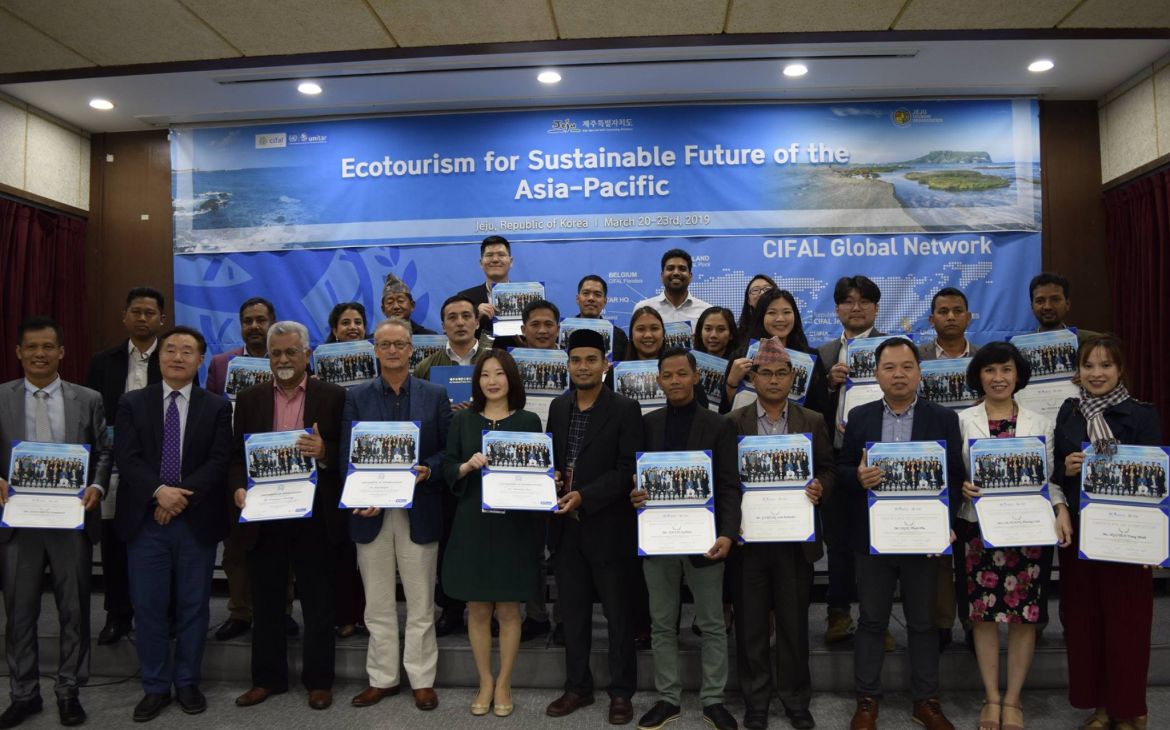20-23 March 2019, Jeju, Republic of Korea – The International Training Centre for Authorities and Leaders in Jeju (CIFAL Jeju) in partnership with Jeju Tourism Organization and Jeju Special Self-Governing Province conducted the workshop “Ecotourism for a Sustainable Future of Asia-Pacific”. This training activity aimed to promote the adoption of appropriate policies and initiatives that foster economic development while protecting culture, heritage and the environment.
Sustainable tourism has been incorporated in the 2030 Agenda for Sustainable Development. It has been particularly included in targets 8.9 - inclusive and sustainable economic growth, 12.b - sustainable consumption and production patterns, 14. 7 -sustainable use of the oceans, seas and marine resources. The implementation of a framework on sustainable tourism requires adequate financing, investment in technology, infrastructure, and most importantly, building capacity at public and private levels to ensure its achievement.
The 4-day workshop gathered 21 participants from government, international organizations, academia and NGOs. It featured high-level speakers such as Dr. Mihee Kang, Asia-Pacific Director of the Global Tourism Council; Dr. Paul Rogers, Director of Planet Happiness; Dr. Natarajan Ishwaran, Editor-in Chief and Professor for the Environmental Development Journal at El Sevier; Dr. Yunseon Choe, Tourism Management Research Professor at Kyung Hee University; and Mr. Reza Pahlevi, CIFAL Jeju Best Practice Award Winner and Programme Officer from the Aceh Besar Culture and Tourism Department.
Presentations focused on key topics including tourism as an economic development tool, identifying natural and cultural resources for ecotourism development, monitoring and evaluation of ecotourism projects, and the concept of ecotourism in relation to sustainable development.
Countries and regions represented in the workshop included Bangladesh, Cambodia, India, Laos, Mongolia, Myanmar, Nepal, Philippines, the Republic of Korea, Vietnam and Taiwan Province of China. Participants expressed their high level of satisfaction as ecotourism has the potential to stimulate economic growth, promote social equality and protect the environment.



